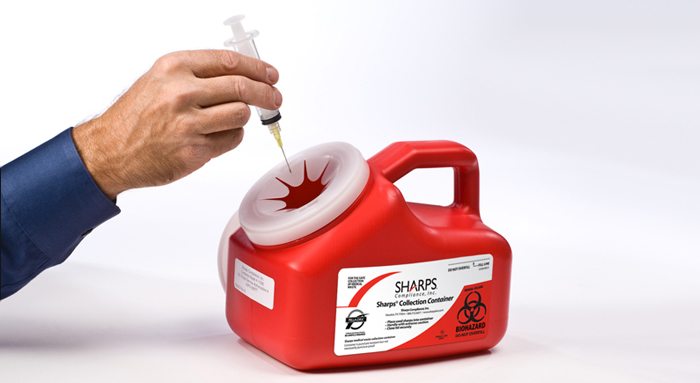On October 5, California Governor Gavin Newsom (D) signed Assembly Bill 1344. The bill will prevent opponents of syringe service programs (SSP) from suing them under the California Environmental Quality Act (CEQA). It comes in response to a series of lawsuits that have—successfully—used bad-faith claims that SSP are harmful to the environment in order to shut them down.
The complaints are an updated version of opponents’ longstanding favorite, albeit baseless, argument: syringe litter. Recent lawsuits alleging that “syringe litter” is polluting public spaces and waterways have forced multiple SSP closures in California.
“The significance is huge,” Dani Drysdale, a coordinator for Harm Reduction Coalition of Santa Cruz County (HRCSCC), told Filter. The volunteer-run SSP is currently facing a lawsuit filed by harm reduction opponents in the name of environmental protection.
“The implication is that the legislature cares a lot about syringe programs continuing to operate and the state not being sued for them. And that some members of the legislature care a lot about environmental law not being put at odds with public health programs.”
CEQA requires state and local governments to assess the environmental impact of any project that would use public funding. If the California state government proposed building a new Hogwarts School of Witchcraft and Wizardry, it would have to complete a CEQA review to determine what, if any, the environmental effects would be. If the review found that such a project would result in an unacceptable increase in broomstick emissions, it would be rejected.
This is what we mean when we say “When we fight we WIN!”
Together in solidarity. Thank you @GavinNewsom You speak truth to power. We stand for science. Thank you @HarmReduction @SFAIDSFound @DrugPolicyOrg https://t.co/lJxUBKvylL— Harm Reduction Coalition of Santa Cruz County (@HRCSCC) October 5, 2021
That CEQA is intended to protect the environment has not stopped harm reduction opponents from manipulating it to target SSP, as it has been manipulated in the past to target homeless shelters.
“These are not environmentalists,” HRCSCC founder Denise Elerick told Filter. “This is a very conservative and rightwing underbelly of the state … This is clearly an anti-homeless lawsuit masked as a concern for the environment.”
In 2018, CEQA complaints shut down the only SSP in Orange County. In 2020, similar campaigns shuttered an SSP in Chico and another in Eureka. The suit against HRCSCC alleges, without evidence, that the program has led to “tens of thousands” of syringes causing “environmental degradation of the creeks, streams, rivers and beaches of Santa Cruz and Santa Cruz County.” A Superior Court judge is expected to rule on the case this week.
All the claims of syringe litter ignore the fact that there is no evidence that SSP have ever increased it—at HRCSCC or any other program—and a wealth of evidence that they reduce it. To date, the number of documented cases of HIV transmission via improperly discarded syringes is zero.
Bill 1344 won’t bring back the shuttered programs; various cities including Chico have since banned SSP entirely. Nor does it guarantee protection for HRCSCC or any other California SSP still operating. The lawyer who has represented all plaintiffs in the CEQA closures has vowed that if the ruling doesn’t go his way, he’ll find other means to shut HRCSCC down.
“There’s still tort law and nuisance law that allows lawsuits to be filed against them,” Jeannette Zanipatin, the California state director for Drug Policy Alliance, told Filter. “CEQA wouldn’t be an impediment.”
Photograph of syringe disposal container via City of Oak Creek, Wisconsin
DPA previously provided a restricted grant to The Influence Foundation, which operates Filter, to support a Drug War Journalism Diversity Fellowship.




